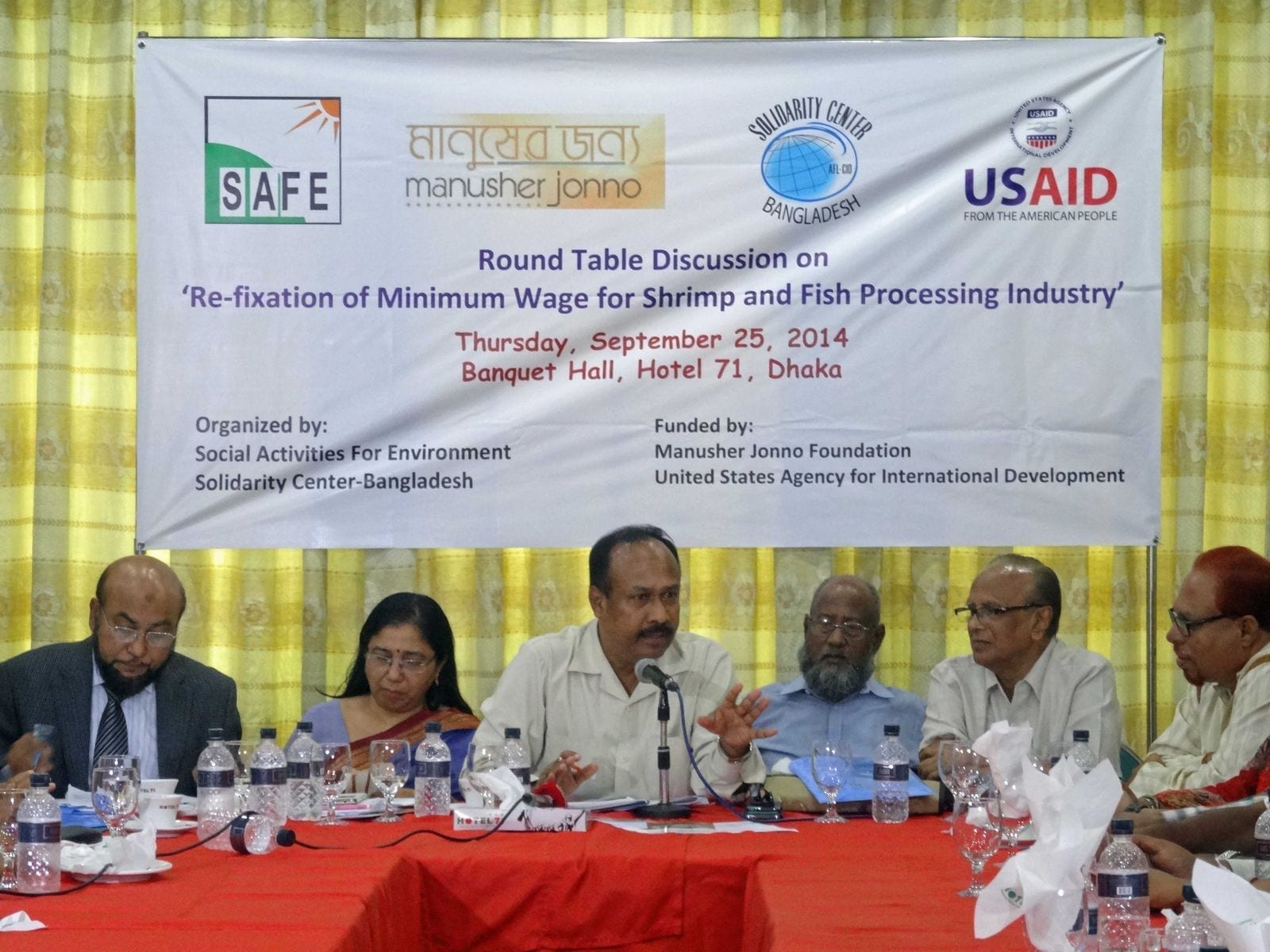Mukta, who works in a shrimp factory in Khulna, Bangladesh, makes $50 per month but that wage is not enough to support his family.
“Although employers should raise wages every year according to the law, they don’t follow the rules,” he said. “I have worked in my factory for nine years and my salary has increased only once.”
Mukta joined a meeting on the wages in the shrimp and fish processing industry with representatives from labor, business and civil society last week. Organized by the Solidarity Center and Social Activities for the Environment (SAFE), the event in Dhaka, the capital, featured Md. Mujibul Haque Chunnu, state minister at the Ministry of Labor and Employment.
The government recently directed the Minimum Wage Board to reassess the minimum wage for workers in the shrimp and fish processing sector. The board, established in 2009, has not revisited the wage level since then.
“It has been five years since the minimum wage was reviewed in the sector,” said Solidarity Center Bangladesh Country Program Director Alonzo Suson. “Now is the time to move toward a new consensus for a living wage for workers in the shrimp industry. A new minimum wage level will not only benefit the workers but the entire community and can make good business sense for a more productive sector.”
Representatives from SAFE, the Bangladesh Frozen Foods Exporters Association (BFFEA) and an academic from Rajshahi University presented their analyses and recommendations based on current conditions and wage levels in the sector. Participant, including union leaders, members of parliament, employers and nongovernmental organizations, then engaged in a vigorous discussion.
Shaheen Anam, executive director of the Manusher Jonno Foundation, a human rights foundation that helped support the event along with U.S. Agency for International Development (USAID), noted the improved working conditions in the shrimp and fish processing sector which resulted from the work of “labor activists over the last several years.” But Anam pointed out that “these activists have faced a lot of threats … especially in the Khulna region.”
In 2013, the BFFEA, the Bangladesh Shrimp and Fish Foundation (BSFF) and the Solidarity Center signed a memorandum of agreement to implement worker rights according to Bangladesh labor law and International Labor Organization (ILO) core labor standards and to give workers the right to form trade unions.

